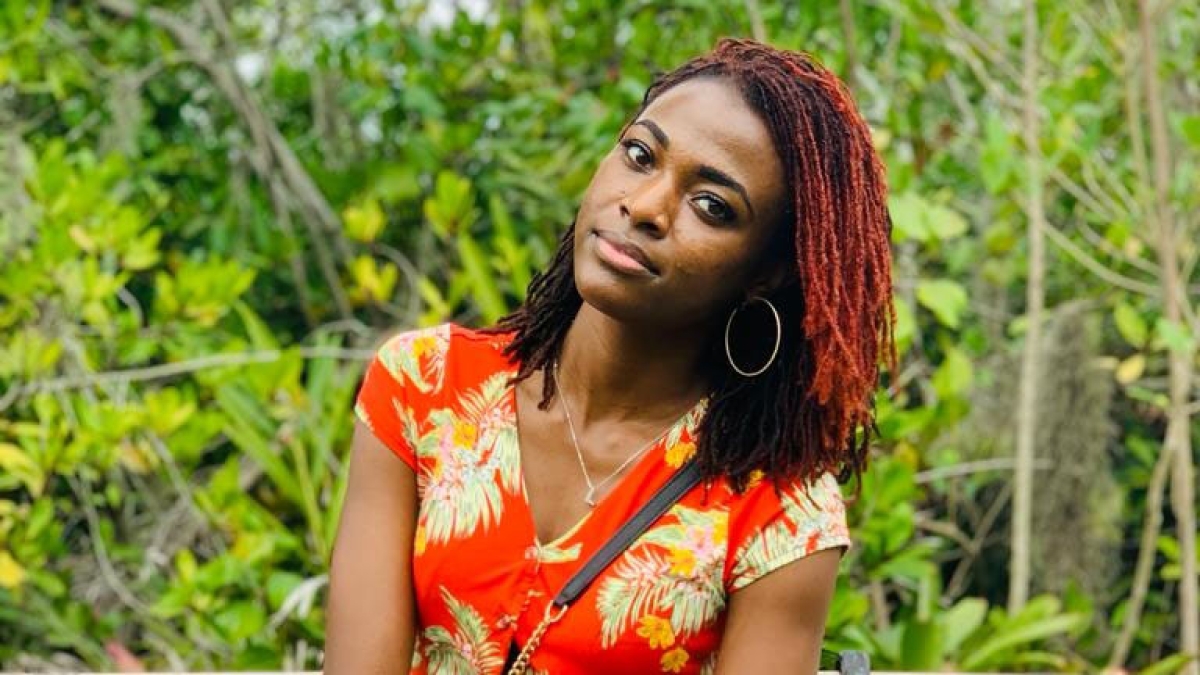Editor’s note: This story is part of a series of profiles of notable fall 2022 graduates.
Science was never on Lakeisha Ramona Brown’s radar. That is, until she was inspired by her ninth-grade chemistry teacher and it changed her life.
“He was very passionate about chemistry and he transferred that passion to his lessons,” said Brown, who was living in Jamaica at the time.
“It was very contagious and I began to see the world from a whole new and exciting perspective.”
That experience not only gave her life direction, but taught her the value of hard work.
“At the time, chemistry was challenging to me and he had these very high expectations,” Brown explained. “And I met those expectations.”
The take home lesson?
“To always set high standards for myself and reach them,” she said.
This month, Brown graduates with a bachelor’s degree in biochemistry from Arizona State University’s School of Molecular Sciences.
Brown started attending college before moving with her family to Florida in 2015. She wanted to finish her degree but needed to remain in Florida and work while attending school. Brown searched throughout the country before finding a fit at ASU. It was accredited and had a biochemistry program that was fully online.
But that was not all.
“I read the success stories of people who went through the program and that persuaded me that this was the right place to pursue a degree in biochemistry,” she said.
Although her degree was online, she attended labs in person.
“It was good to actually be among people who, like myself, had to work full time and go to school full time — people who were in the same position as I was,” Brown said.
Brown is currently working with a pathologist and learning about disease diagnosis.
Her plan for the future?
“My goal is to do research — mainly cancer research or drug development,” Brown said. “But not to focus too much on the disease, but rather to put my efforts into finding treatments and curing diseases.”
ASU News spoke to Brown about her experience at ASU, her future plans and the advice she would give current students.
Question: What was the “aha” moment when you realized you wanted to study the field you majored in?
Answer: I developed a love for chemistry when I was introduced to it in high school in Jamaica. Ever since, I have always wanted to know the “why” behind everything and I find nothing more satisfying than understanding the wonders of the world.
I started out pursuing a teaching degree in chemistry and had the opportunity to work in the field for a year. However, not wanting to limit myself to the classroom led me to pursuing a degree in biochemistry, which will allow more room for expansion in the field.
Q: Why did you choose ASU?
A: ASU was one of the only institutions that offered a full online program in biochemistry. This was convenient as it allowed me to work and pursue my education full time; a balance that I needed. ASU also has a track record of online students who successfully matriculated from the program to many other fields and so I was assured the quality of education was preserved regardless of it being online.
Q: What’s the best piece of advice you’d give to those still in school?
A: It will all be worth it in the end. Be resourceful. Figure out what your learning style is and use it to your advantage. Most importantly, while you keep the end goal in mind, enjoy the journey.
Q: What did you learn while at ASU — in the classroom or otherwise — that surprised you or changed your perspective?
A: I was always fascinated with the idea of becoming a doctor just to treat illnesses. While completing cell biology with ASU Professor David Capco, my focus shifted from wanting to simply treat a disease, to finding cures or measures to reverse a disease. That got me rethinking my career path.
Q: If someone gave you $40 million to solve one problem on our planet, what would you tackle?
A: I would pump the funds into cancer research. I currently work in pathology and it saddens me to see the number of new cancer diagnoses each day, knowing that there are only treatments and still no cure; no way to revert those tumor cells back to normal. Research into other genetic diseases would also be top priority.
More Science and technology

Breakthrough copper alloy achieves unprecedented high-temperature performance
A team of researchers from Arizona State University, the U.S. Army Research Laboratory, Lehigh University and Louisiana State University has developed a groundbreaking high-temperature copper alloy…

4 ASU researchers named senior members of the National Academy of Inventors
The National Academy of Inventors recently named four Arizona State University researchers as senior members to the prestigious organization.Professor Qiang Chen and associate professors Matthew…

Transforming Arizona’s highways for a smoother drive
Imagine you’re driving down a smooth stretch of road. Your tires have firm traction. There are no potholes you need to swerve to avoid. Your suspension feels responsive. You’re relaxed and focused on…


